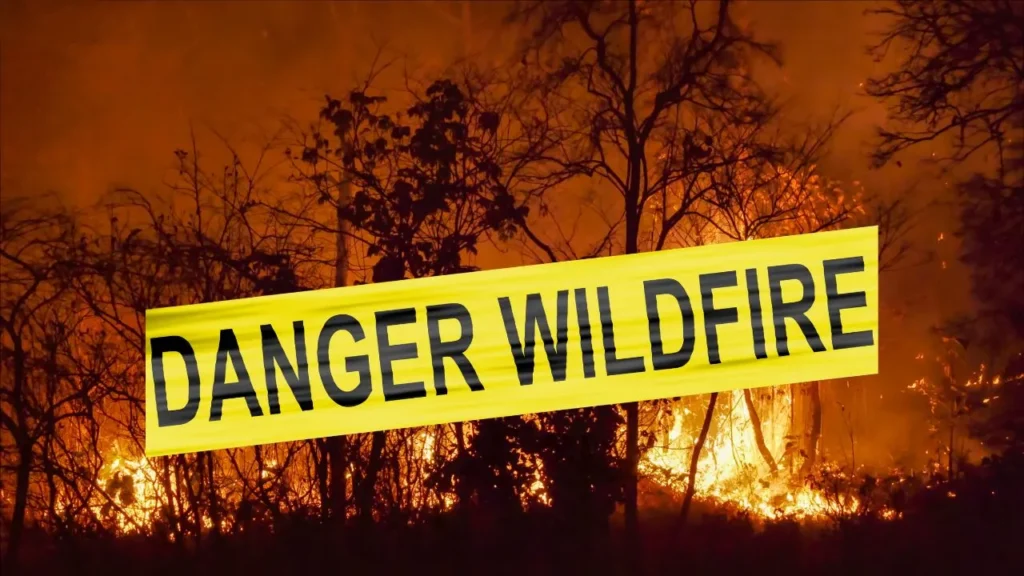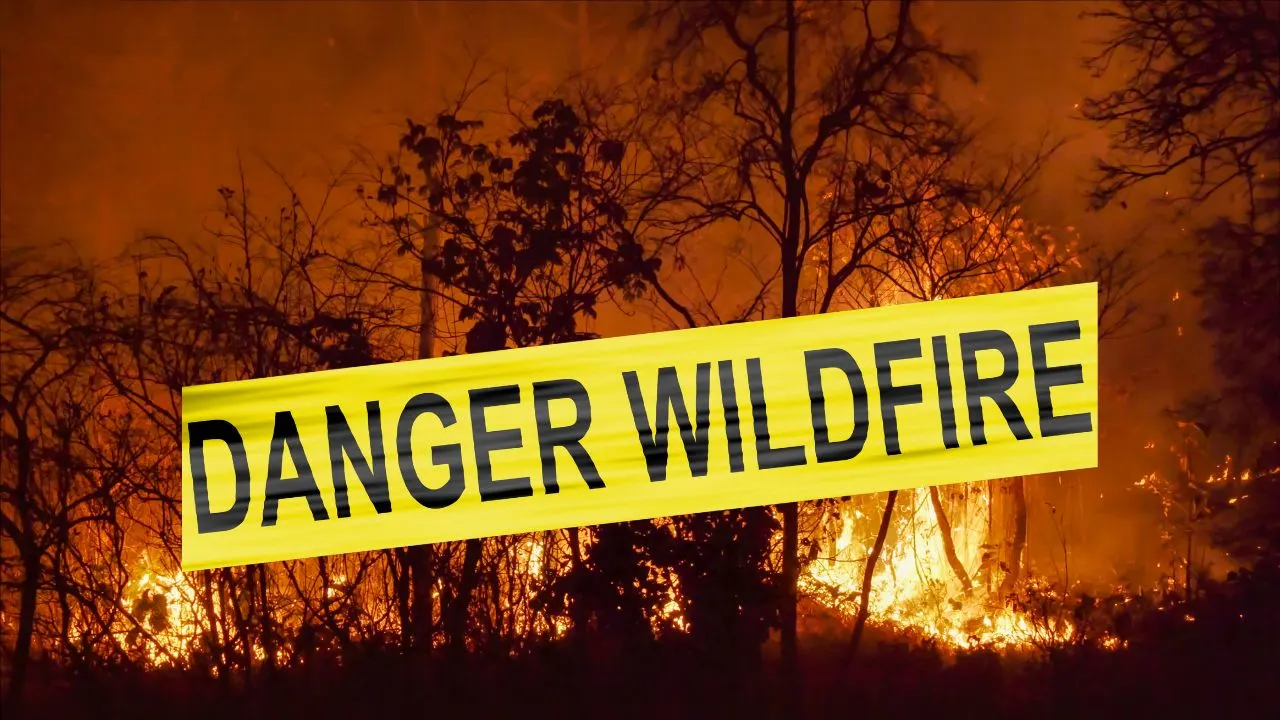Legal Implications of Refusing to Evacuate During Wildfires.Wildfires have become increasingly common in many parts of the world, destroying homes, communities, and lives. Every year, thousands of people face the terrifying decision of whether to leave their homes when an evacuation order is issued or to stay behind in the hope that the fire will pass them by.
While the emotional pull to protect property, pets, and memories is strong, refusing to evacuate when authorities give the order is not just a matter of personal choice. It also carries serious legal, financial, and ethical consequences that many people do not fully understand.
Legal Implications of Refusing to Evacuate During Wildfires-Overview
| Article on | Legal Implications of Refusing to Evacuate During Wildfires |
| Purpose of Evacuation Orders | Issued to protect lives and allow firefighters to focus on the fire, not rescues. |
| Legal Authority | Local and state officials can mandate evacuations under emergency laws. |
| Criminal Consequences | Refusing to evacuate may lead to fines, charges, or arrest. |
| Rescue Costs | Individuals can be billed for expensive rescue operations. |
| Insurance Issues | Claims may be denied or reduced if orders are ignored. |
| Individual Rights vs. Public Safety | Laws prioritize community safety over personal choice. |
| Real-Life Examples | Past wildfires show tragedies and costly rescues when people refused to leave. |
| Long-Term Trends | Stricter enforcement and higher penalties are becoming more common. |
Why Evacuation Orders Exist
Evacuation orders are not issued casually. They come after emergency management officials, fire departments, and law enforcement agencies carefully assess the danger posed by a wildfire. Wildfires can move with shocking speed, sometimes consuming entire neighborhoods in a matter of hours.
When authorities order an evacuation, it usually means that staying in the area poses an immediate threat to human life. These orders are designed to save lives, but they also help emergency crews. If residents evacuate promptly,

firefighters and rescue teams can focus on fighting the fire rather than rescuing people who chose to stay behind. In simple terms, evacuation orders are about protecting the community as a whole, not just the individual.
The Legal Authority Behind Evacuation Orders
Most states and countries have laws that grant local governments the power to issue evacuation orders during emergencies. In the United States, for example, governors, mayors, sheriffs, or designated emergency managers can order evacuations under state emergency management laws.
These laws are grounded in the idea that public safety is a shared responsibility and that government authorities must act in times of crisis to protect citizens. When an evacuation order is mandatory, it means that staying behind is not just risky but also potentially unlawful.
Some jurisdictions classify refusal to evacuate as a misdemeanor, which can carry fines or even jail time. Others may not criminalize the act directly but can still hold people accountable if their choice leads to harm or additional costs.
Criminal Penalties for Refusal
The enforcement of evacuation orders different widely depending on the location. In some areas, refusing to evacuate may not result in immediate arrest because police cannot realistically force every resident out. However, laws often exist in the background, allowing penalties after the fact.
For example, a person who refuses to leave could be cited for obstructing the emergency operations. In other places, refusal may fall under the public endangerment statutes. Even if not arrested during the crisis, individuals might later face charges if their actions required first responders to risk their lives unnecessarily. While penalties may not always be applied, the possibility of criminal consequences is real.
Liability for Rescues and Costs
One of the lesser-known legal consequences of refusing to evacuate is financial liability. When someone stays behind and later requires rescue, the cost of that operation can be enormous. Helicopters, specialized teams, and medical services can cost tens of thousands of dollars in a single mission. Some states allow governments to bill individuals for these costs if their refusal to comply with an evacuation order led directly to the need for rescue.
Beyond the financial aspect, there is also the moral and legal responsibility of putting others at risk. First responders who must enter dangerous wildfire zones to rescue holdouts face extreme hazards. If a firefighter or rescuer is injured or killed during such an operation, the legal system may examine the role of the person who refused to evacuate. In some tragic cases, survivors have been sued or charged with reckless endangerment because their actions caused harm to rescuers.
Insurance and Property Implications
Another angle often overlooked is how refusing to evacuate can affect the insurance claims. Homeowners and renters insurance typically covers fire damage, but insurers expect policyholders to take reasonable steps to protect themselves and their property.
If someone refuses to evacuate and their actions contribute to greater losses according to them, by preventing firefighters from accessing the property or by ignoring safety directives, an insurance company might reduce or deny the claim.
Balancing Individual Rights and Public Safety
A common argument against the required evacuation orders is that people should have the freedom to make their own decisions about lives and property. In democratic societies, individual rights are deeply valued, and the idea of being forced from one’s home can feel like an infringement on personal liberty. However, the law also recognizes that individual choices can impact others, especially in emergencies.
Real-Life Examples
Several past wildfire events highlight the dangers and legal issues around refusing to evacuate. In California’s 2018 Camp Fire, for instance, some residents ignored evacuation orders and later had to be rescued under life-threatening conditions. Those rescues diverted resources away from firefighting and contributed to the chaos of the event. Afterward, debates arose about whether those who refused should be held accountable for the added risks and costs.
In Texas, there have been instances where residents who ignored evacuation instructions during hurricanes and wildfires were later billed for rescue operations. Same as, in Australia, where bushfires are common, laws now give police broader authority to remove residents who refuse to leave during declared emergencies, precisely because too many tragedies occurred when people tried to “wait it out.”
Ethical and Community Considerations
Beyond the legal aspects, refusing to evacuate raises ethical questions. Communities rely on cooperation to survive natural disasters. When a few individuals choose to stay behind, they may indirectly harm the community by diverting resources and increasing the risks. There is also the psychological burden on first responders who may feel compelled to attempt dangerous rescues, even when residents were warned to leave.
Long-Term Legal Trends
As wildfires become more frequent due to climate change and environmental factors, the legal landscape around evacuation orders is likely to evolve. We may see stricter enforcement, higher penalties, and more aggressive cost recovery efforts from governments. Insurance companies may also tighten the policies to discourage risky behavior.
| Home Page | https://sbbarristers.com/ |
FAQs for Legal Implications of Refusing to Evacuate During Wildfires
Can I be arrested for refusing to evacuate?
Yes, in some areas refusing a mandatory order can lead to fines or arrest.
Do I have to pay for rescue if I stay behind?
Sometimes you may be billed for costly rescue operations.
Will my insurance cover me if I don’t evacuate?
Not always; ignoring orders can affect claims.
Who gives evacuation orders?
Local or state officials like governors, sheriffs, or emergency managers.
Is it really that dangerous to stay?
Yes, wildfires move fast and endanger both you and first responders.
